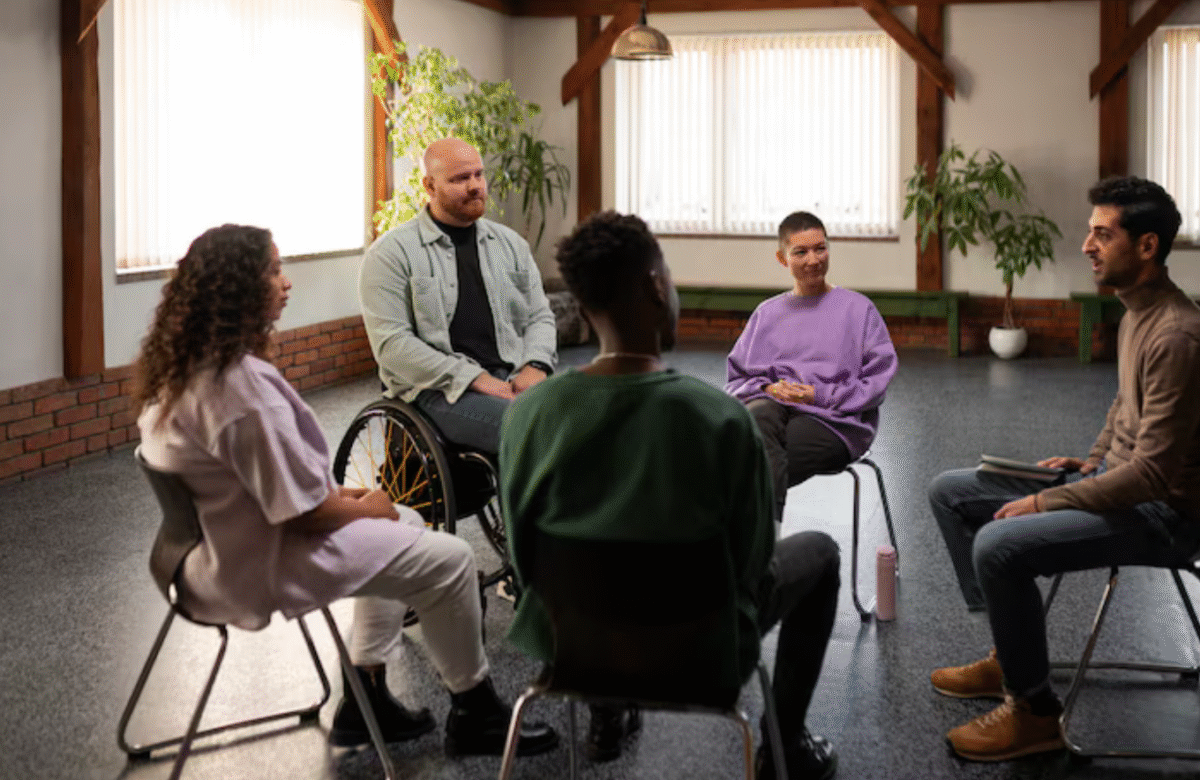The relentless demands of the modern workplace can often feel like a tidal wave threatening to engulf us. Deadlines loom, emails flood our inboxes, and the pressure to perform can feel immense. It’s no wonder that work stress has become a pervasive issue, impacting our physical and mental well-being, our productivity, and ultimately, our overall quality of life. While some level of pressure can be motivating, chronic stress can lead to burnout, anxiety, and a host of health problems.
Fortunately, work stress doesn’t have to be an inevitable part of your professional life. By proactively implementing effective coping mechanisms, you can navigate the challenges with greater resilience and find your calm amidst the chaos. Here are 10 powerful ways to deal with job stress and cultivate a healthier, more balanced approach to your career:
1. Prioritize and Organize: Taming the Task Monster
Often, the sheer volume of work can feel overwhelming, leading to a sense of being buried under a mountain of tasks. This feeling of being out of control significantly contributes to stress. The antidote? Taking charge through effective prioritization and organization.
- Break down large tasks: Instead of staring at a daunting project, break it down into smaller, more manageable steps. This not only makes the task feel less intimidating but also provides a sense of accomplishment as you tick off each sub-task.
- Utilize time management techniques: Explore methods like the Eisenhower Matrix (urgent/important), the Pomodoro Technique (focused work intervals with short breaks), or simply creating daily to-do lists with realistic deadlines. Find a system that resonates with your work style.
- Learn to say no: Overcommitting yourself is a surefire recipe for stress. Politely decline additional tasks when your plate is already full. Understand your capacity and prioritize quality over quantity.
- Organize your workspace: A cluttered desk can contribute to a cluttered mind. Take a few minutes each day to organize your physical and digital workspaces. A clean and organized environment can promote focus and reduce feelings of overwhelm.
By gaining control over your workload through effective organization and prioritization, you can reduce the feeling of being overwhelmed and create a sense of order amidst the demands of your job.
2. Master the Art of the Break: Recharge and Rejuvenate
In our hyper-productive culture, taking breaks can sometimes feel like a luxury or even a sign of weakness. However, stepping away from your work, even for short periods, is crucial for both your mental and physical well-being.
- Schedule regular short breaks: Aim for short breaks every hour to stretch, walk around, or simply look away from your screen. These brief pauses can help to refocus your mind and reduce eye strain.
- Utilize your lunch break fully: Don’t eat at your desk while continuing to work. Step away from your workspace, eat mindfully, and engage in a relaxing activity like reading, listening to music, or taking a short walk.
- Disconnect during breaks: Resist the urge to check emails or engage in work-related tasks during your breaks. Allow your mind to truly switch off and recharge.
- Take your allocated vacation time: Don’t let your vacation days go to waste. Taking time off to completely disconnect from work is essential for preventing burnout and returning with renewed energy and perspective.
Breaks are not a sign of laziness; they are an essential investment in your sustained productivity and overall well-being.
3. Cultivate Mindfulness and Presence: Finding Peace in the Moment
Work stress often stems from worrying about the future or dwelling on the past. Cultivating mindfulness – the practice of paying attention to the present moment without judgment – can help to anchor you in the now and reduce these anxieties.
- Practice deep breathing exercises: When feeling overwhelmed, take a few slow, deep breaths. Inhale deeply through your nose, hold for a few seconds, and exhale slowly through your mouth. This simple technique can calm your nervous system.
- Engage in mindful activities: Pay attention to your senses during everyday activities like drinking your morning coffee, walking to work, or even washing your hands. Notice the smells, tastes, sounds, and sensations.
- Explore meditation or yoga: Regular meditation or yoga practice can train your mind to be more present and less reactive to stressors. Even a few minutes of daily practice can make a significant difference.
- Limit distractions: Minimize interruptions like social media notifications or unnecessary emails while you’re trying to focus on a task. Being present in your work can actually increase efficiency and reduce stress.
By cultivating mindfulness, you can learn to observe your thoughts and feelings without getting carried away by them, creating a greater sense of calm and control amidst the demands of work.
4. Prioritize Sleep: The Ultimate Recharge Button
Adequate sleep is fundamental for both our physical and mental health. When we’re sleep-deprived, our ability to cope with stress significantly diminishes, making us more irritable, less focused, and more prone to job stress and anxiety.
- Establish a regular sleep schedule: Try to go to bed and wake up around the same time each day, even on weekends, to regulate your body’s natural sleep-wake cycle.
- Create a relaxing bedtime routine: Wind down before bed with calming activities like reading, taking a warm bath, or listening to soothing music.
- Optimize your sleep environment: Ensure your bedroom is dark, quiet, and cool. Invest in a comfortable mattress and pillows.
- Limit caffeine and alcohol before bed: These substances can interfere with your sleep quality.
- Avoid screen time before bed: The blue light emitted from electronic devices can suppress melatonin production, making it harder to fall asleep.
Prioritizing sleep is not a luxury; it’s a necessity for managing stress effectively and performing at your best.
5. Fuel Your Body Wisely: Nutrition’s Role in Stress Management
What we eat can significantly impact our energy levels, mood, and ability to cope with stress. A balanced and nutritious diet can provide the fuel our bodies and minds need to navigate challenging situations.
- Eat regular, balanced meals: Avoid skipping meals, as this can lead to fluctuations in blood sugar levels, which can exacerbate stress. Focus on whole, unprocessed foods, including fruits, vegetables, whole grains, and lean protein.
- Stay hydrated: Dehydration can lead to fatigue and decreased cognitive function, making it harder to cope with stress. Drink plenty of water throughout the day.
- Limit processed foods, sugary drinks, and excessive caffeine: These can provide a temporary energy boost but often lead to crashes and can worsen anxiety symptoms.
- Consider stress-reducing nutrients: Some nutrients, like omega-3 fatty acids, magnesium, and B vitamins, have been linked to improved mood and stress resilience. Incorporate foods rich in these nutrients into your diet.
Nourishing your body with healthy foods is an act of self-care that can significantly enhance your ability to manage work stress.
6. Move Your Body: The Stress-Busting Power of Exercise
Physical activity is a powerful stress reliever. Exercise releases endorphins, which have mood-boosting and pain-relieving effects. It also helps to reduce tension, improve sleep, and boost overall well-being.
- Find an activity you enjoy: Whether it’s running, swimming, dancing, hiking, or simply taking a brisk walk, choose an activity that you find enjoyable and that you’re more likely to stick with.
- Aim for regular exercise: Try to incorporate at least 30 minutes of moderate-intensity exercise most days of the week.
- Take movement breaks during the workday: If you have a sedentary job, make an effort to stand up and move around regularly throughout the day.
- Consider active commuting: If possible, walk or bike to work. This can be a great way to incorporate physical activity into your daily routine.
Making physical activity a regular part of your life is an investment in your physical and mental resilience against stress.
7. Cultivate Healthy Boundaries: Protecting Your Time and Energy
In today’s always-on work culture, it’s easy for work to bleed into our personal lives, leading to burnout and increased stress. Establishing and maintaining healthy boundaries is crucial for protecting your time and energy.
- Set clear work hours: Define your working hours and stick to them as much as possible. Avoid checking emails or doing work-related tasks outside of these hours.
- Learn to say no to after-hours requests: While occasional flexibility may be necessary, consistently working beyond your designated hours can lead to exhaustion and resentment.
- Create physical boundaries: If you work from home, designate a specific workspace and try to keep your work life separate from your personal life.
- Communicate your boundaries clearly: Let your colleagues and supervisors know your availability and be firm about your boundaries.
Establishing healthy boundaries is not selfish; it’s a necessary act of self-preservation that allows you to recharge and return to work feeling refreshed and focused.
8. Nurture Social Connections: The Power of Support
Humans are social beings, and strong social connections play a vital role in our mental and emotional well-being. Having supportive relationships at work and outside of work can provide a buffer against stress.
- Connect with colleagues: Build positive relationships with your colleagues. Having friendly connections at work can make the workplace more enjoyable and provide a sense of camaraderie.
- Seek support from friends and family: Talk to trusted friends and family members about your work stress. Sharing your feelings can be helpful, and they may offer valuable perspectives or simply a listening ear.
- Consider joining social or professional groups: Connecting with people who share your interests or work in your field can provide a sense of belonging and support.
- Don’t isolate yourself: Make an effort to maintain social connections, even when you’re feeling stressed. Social interaction can actually help to alleviate stress.
Strong social connections provide a vital support system that can help you navigate challenging times and reduce feelings of isolation and stress.
9. Seek Professional Help When Needed: It’s Okay Not to Be Okay
Sometimes, work stress can become overwhelming and difficult to manage on your own. Recognizing when you need professional help is a sign of strength, not weakness.
- Talk to your doctor: If you’re experiencing persistent symptoms of stress, such as anxiety, depression, or sleep problems, talk to your doctor. They can assess your situation and recommend appropriate treatment options.
- Consider therapy or counseling: A therapist or counselor can provide you with coping strategies and tools to manage work stress effectively. They can also help you address any underlying issues that may be contributing to your stress.
- Utilize employee assistance programs (EAPs): Many organizations offer EAPs that provide confidential counseling and support services to employees.
- Don’t be afraid to ask for help: Reaching out for professional support is a proactive step towards improving your well-being and managing work stress effectively.
Seeking professional help is a sign of self-care and can provide you with the necessary support to navigate challenging times.
10. Cultivate a Positive Mindset: Finding the Silver Linings
While it’s important to acknowledge and address the challenges of work stress, cultivating a positive mindset can significantly impact your ability to cope.
- Practice gratitude: Take time each day to appreciate the positive aspects of your job and your life. Focusing on what you’re grateful for can shift your perspective.
- Reframe negative thoughts: Challenge negative thought patterns and try to reframe them in a more positive or realistic light.
- Focus on what you can control: Instead of dwelling on things you can’t change, focus your energy on what you can influence.
- Celebrate small wins: Acknowledge and celebrate your accomplishments, no matter how small. This can boost your morale and sense of progress.
- Practice self-compassion: Be kind and understanding towards yourself, especially during challenging times. Recognize that everyone experiences stress.
Cultivating a positive mindset doesn’t mean ignoring the difficulties, but it does equip you with a more resilient and optimistic approach to facing them.
In Conclusion
Dealing with work stress is an ongoing process that requires self-awareness, proactive strategies, and a commitment to prioritizing your well-being. By incorporating these ten effective ways into your daily routine, you can build resilience, find your calm amidst the chaos, and cultivate a healthier, more balanced, and ultimately more fulfilling professional life. Remember that you are not alone in experiencing work stress, and taking steps to manage it is an investment in your long-term health and happiness.












